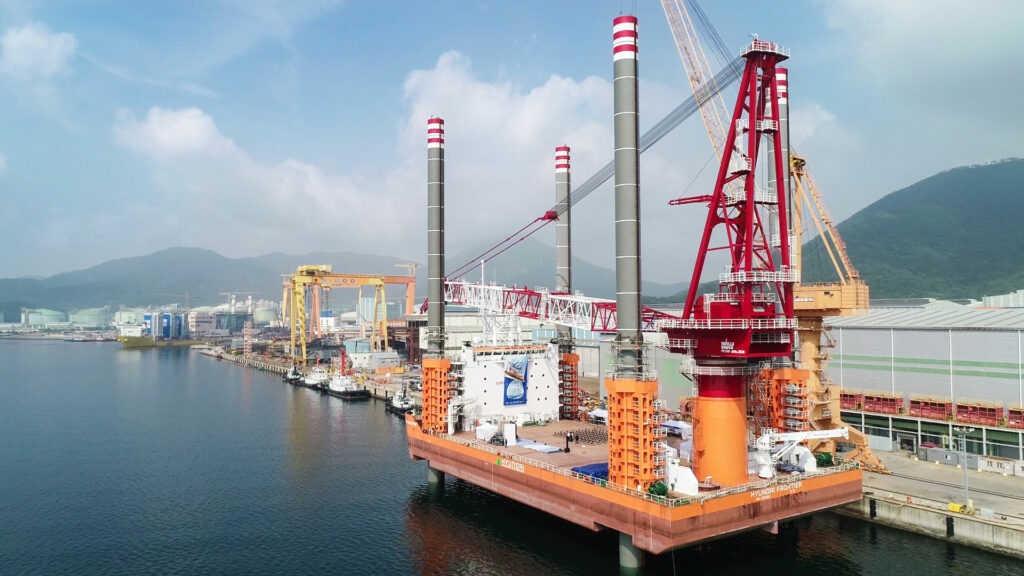The 14,000-tonne vessel is 85 metres long, 41 metres wide, and 6.5 metres high.

Hyundai Engineering & Construction
Hyundai Frontier is equipped with a dynamic position system that maintains an accurate position in the sea where the influence of current speed and wave height is large, and a jacking system that lifts the hull above the water surface and fixes it.
With its 1,200-tonne integrated crane, the vessel is capable of installing a 10 MW wind turbine with a pedestal crane that can lift up to 800 tonnes.
“The development of Hyundai Frontier, the first domestic offshore wind power installation vessel, secures installation stability and dramatically improves time and cost, and I believe it will play a significant role in expanding the supply of offshore wind power in Korea,” said Lee Cheong-Hyu, CEO of Hyundai Steel.
After the departure ceremony that was held yesterday at Tongyeong-si in South Korea, the Hyundai Frontier will move to the 100 MW Jeju Hallim Offshore Wind Power construction site, where it will carry out practical installation and demonstration work.
The Jeju Hallim wind farm is located near Hallim Port in the northwestern part of Jeju City.
The project is owned and developed by Jeju Hallim Offshore Wind Power Co., Ltd., a special-purpose company established by KEPCO, Korea Midland Power, Hyundai E&C, and Korea Electric Power
“After the successful completion of Jeju Hallim offshore wind power construction, which is put into action for the first time after today’s departure ceremony, we look forward to playing a significant role in offshore wind power projects at home and abroad,” said Lee Cheong-Hyu.
Under its Renewable Energy 3020 Implementation Plan, South Korea plans to develop 12 GW of offshore wind projects by 2030.